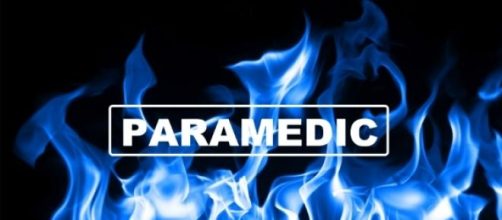According to a recent BBC report, more than 1,000 paramedics across the UK quit their front-line operational jobs in the year 2013 to 2014. This was a significant increase from the previous year, when only 593 paramedics left, rapidly turning this into a chronic problem that shows no signs of slowing down. Paramedics are being subjected to excessive work loads, long shifts with no breaks, frustrations within the system and a lack of direction, leading many of these dedicated professionals unable to cope.
The professional title of 'Paramedic' is a protected one that requires a specific level of training, culminating in registration with the Health & Care Professions Council (HCPC). There are currently a total of 21,271 paramedics registered with the HCPC across the UK, with just under 19,000 operational on the front line. This is a slight rise from a year ago when there were 17,000, but is not nearly enough to keep up with the vast numbers leaving, creating a significant lack of experience.
Recruiting qualified paramedics has proved challenging for the ambulance trusts over recent years; the spotlight is now on this topic due to the large numbers of paramedics leaving the NHS. Although some large recruitment drives have been made, including international attempts, there is little to attract potential or qualified paramedics to the NHS. With a seemingly unstoppable mix of long hours, bureaucracy, high workloads and lack of progression, it is not a place many can see developing a career, not to mention their vocation.
One paramedic, who preferred to remain anonymous, tells the story of how, after immigrating to the UK from South Africa with 12 years experience as a frontline paramedic, he was turned away from 5 NHS ambulance trusts, simply due to the fact that he did not have a blue light driving qualification. He further explained that although he had his HCPC registration and his qualification was recognised in the UK, none of these trusts were prepared to cover the £3,000 fee to complete a blue light driving course and felt it suitable to turn the clinical experience away due to such regulations.
This example is a clear indication of how the ambulance trusts, in an attempt to minimise costs and conform entirely to regulation, miss out on the bigger picture - failing drastically in a much needed pragmatic approach in a difficult and volatile time. They do need to recruit specialist emergency healthcare professionals as quickly as possible, but at the same time retain the skills they have.
Added to the strange culture within the ambulance trusts in emphasising the importance of driving qualifications, many paramedics have voiced their distaste at the target-driven culture that has developed throughout the NHS. Of the many, the one that is particularly frowned upon by staff is that 75% of red flag calls, in other words top priority calls, need to be attended within 8 minutes. This is a reasonable target that certainly benefits a seriously ill patient, but becomes counter productive when these targets are relied upon for budgets, performance, etc.
This sort of target becomes especially apparent when there are insufficient numbers to fulfil them, leaving current staff to burden the load and achieve these numbers under extreme constraints. High priority calls would need to be attended by a paramedic who has the correct level of skills and capabilities to treat seriously ill patients, but with dwindling numbers, will high priority patients be attended by the correct professionals albeit in the allocated 8 minutes?
Healthcare is expensive. The NHS is lacking in financial resources - the topic is an important issue in the recent general election. The question however is whether a lack of funds is worth the lives of people in a first world country who, for whatever reason, require urgent advanced medical treatment.

